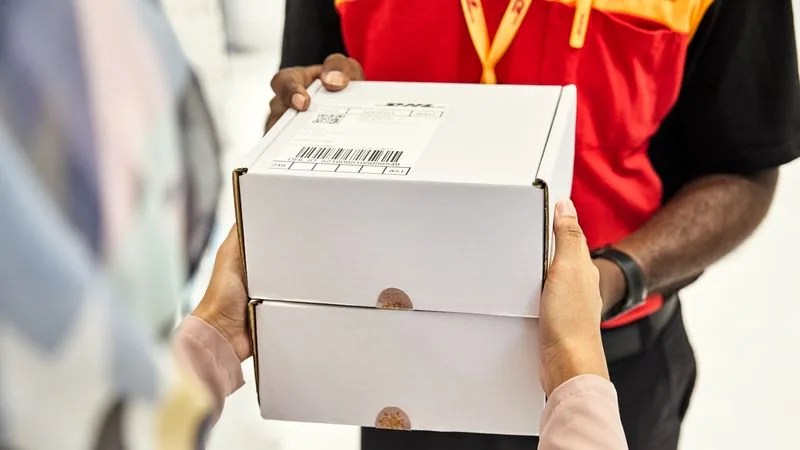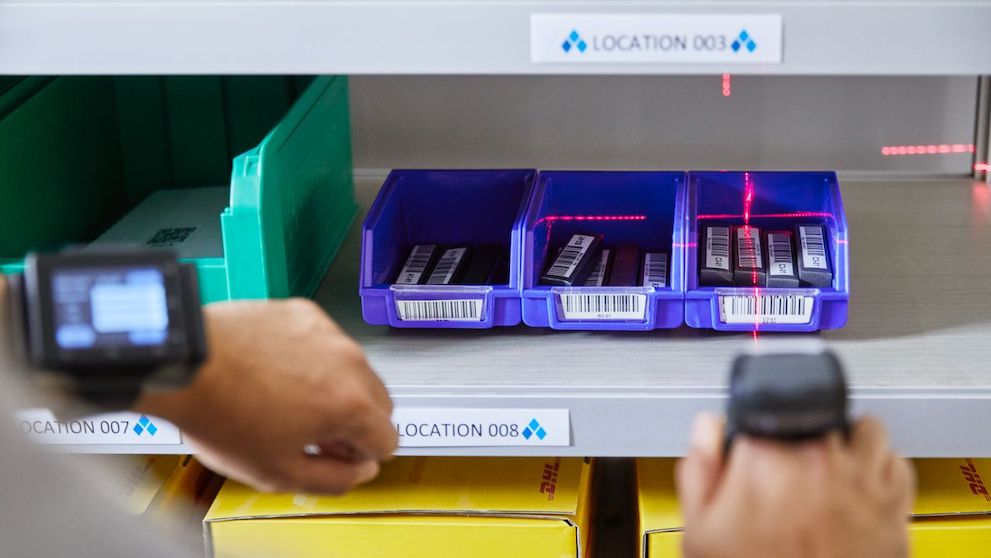Thailand and Malaysia are neighbors with a shared border of 658 kilometers. Historically, both nations have maintained close diplomatic ties as a result of shared interests in regional stability and economic development after World War II. In recent decades, both countries have developed a deep bilateral relationship.
As export-dependent economies, Thailand and Malaysia regularly trade with each other and even established the Malaysia-Thailand Join Authority (MTJA) in 1979 to promote tourism between the two countries, expand economic cooperation and explore new investment opportunities.
A historical overview of Thailand-Malaysia trade
Early trade routes between Thailand and Malaysia date back centuries, driven by their strategic geographic positions along the maritime Silk Road. These early trade routes saw the export and import of valuable goods such as spices and textiles, fostering economic interdependence. The flourishing trade not only enhanced commerce but also led to significant cultural exchanges, resulting in influences in art, architecture, and social practices between the neighbors. The result of this can be seen in the modern day, as the communities in the South of Thailand, closest to the border with Malaysia, speak Malay and adhere to Malay customs.
Following their independence, Thailand and Malaysia progressively strengthened their trade ties. A significant milestone came with the formation of the Association of Southeast Asian Nations (ASEAN) in 1967, where both Thailand and Malaysia played founding roles. The ASEAN Free Trade Area (AFTA) in 1992 and the Thailand-Malaysia Free Trade Agreement (TMFTA) in 2005 soon followed. Furthermore, the ASEAN Economic Community (AEC) was launched in 2015 to facilitate increased trade and investments. These agreements and initiatives have fostered closer cooperation that extends to this day.
The backbone of trade: Key products and industries
Thailand export to Malaysia
Since the establishment of the AFTA, Malaysia has become Thailand’s third-largest trading partner within ASEAN. In 2022, Thailand’s exports to Malaysia totaled US$12.43 Billion.
The top Thailand export products to Malaysia are:
Agricultural products:
- Rice: Thailand is one of the world’s largest rice exporters and exports a significant amount of rice to Malaysia
- Rubber: Thailand is a leading rubber producer, and exports natural rubber to Malaysia for manufacturing needs
- Fruits: Fresh or processed fruits from Thailand, including durians, mangoes, and longan
- Vegetables: Various Thai vegetables are exported to Malaysia
Manufactured goods:
- Electronics: Thailand exports items like semiconductors, circuit boards, and consumer electronics to Malaysia
- Automobiles: Thai automotive exports include parts and complete vehicles
- Machinery: Various types of machinery exports go toward supporting Malaysia’s industrial sector
Textiles and Apparel:
- Clothing: Thailand exports a wide range of garments, from casual wear to specialized clothing
- Accessories: Bags and other textile-based products
Malaysia export to Thailand
Thailand is Malaysia’s second-largest trading partner within the ASEAN region. During 2023, exports to Thailand from Malaysia totaled US$12.8 Billion.
The major Malaysia export products to Thailand are:
Electronic and electrical Goods:
- Semiconductors: Exporting semiconductor components to be used in electronics manufacturing
- Computers: Complete systems and components
- Telecommunication equipment: Telecommunication devices and infrastructure components
Petroleum products:
- Crude oil: Malaysia is a notable oil producer, exporting oil to Thailand to meet its energy needs
- Refined petroleum products: Including gasoline, diesel, and other refined products
- Petrochemicals: Exporting a range of petrochemical products essential for manufacturing various goods
Palm oil and other agricultural products
- Palm oil: Malaysia is one of the largest producers of palm oil globally
- Rubber: Malaysia exports rubber to Thailand for manufacturing
- Processed food products: Malaysia exports an assortment of processed foods, including snacks, sauces, and other culinary products
Malaysian Cities: Gateways to Opportunity for Thai Businesses
Malaysia boasts a diverse range of cities, each with its own unique economic strengths and potential for trade with Thailand. Let's explore some key destinations:
- Kuala Lumpur: As the capital and largest city, Kuala Lumpur is a major commercial and financial hub. Its thriving economy presents opportunities for Thai businesses in sectors like electronics, machinery, and textiles.
- Penang: Known for its manufacturing prowess, Penang is a key player in the electronics and electrical goods sector. This presents a significant opportunity for Thai businesses involved in the export of components and related products.
- Georgetown: A UNESCO World Heritage Site, Georgetown on Penang Island is a vibrant cultural center with a growing tourism industry. Thai businesses in the food and beverage, hospitality, and tourism sectors could find promising opportunities here.
- Malacca: This historical city is a popular tourist destination, offering potential for Thai businesses in the hospitality, souvenir, and cultural tourism sectors.
- Ipoh: Famous for its rich culinary heritage, Ipoh presents opportunities for Thai food exporters and businesses specializing in unique food products and ingredients.
- Kuantan: As a major industrial and port city, Kuantan offers potential for Thai businesses involved in logistics, manufacturing, and the export of raw materials.
These cities, along with numerous others across Malaysia, offer a diverse and dynamic market for Thai businesses looking to expand their reach. By understanding the unique characteristics and economic strengths of each city, Thai businesses can tailor their approach and maximize their potential for success in the Malaysian market.
Facilitating trade: Agreements and frameworks
The AFTA was established to enhance economic cooperation among its member countries by reducing tariffs on goods traded within the ASEAN region. Through the Common Effective Preferential Tariff (CEPT) scheme, tariffs on import export goods traded between Thailand and Malaysia have dropped significantly.
Besides the AFTA, other bilateral agreements established between Thailand and Malaysia have also further strengthened their trade relationship.
A few of these agreements include the Thailand-Malaysia Joint Development Strategy (JDS), which promotes cross-border cooperation, focusing on economic development, infrastructure, and connectivity.
Similarly, the Malaysia-Thailand Border Economic Cooperation Agreement also aims to enhance trade and investment activities along the shared border. Another such agreement is the Thailand-Malaysia Agreement on Avoidance of Double Taxation which helps businesses and individuals avoid being taxed twice on the same income in both countries, reducing the shipping costs from Thailand to Malaysia and vice versa, encouraging more businesses to engage in cross-border trade.
Overcoming challenges and future outlook
While the agreements have worked out favorably for the most part, both countries have also had their fair shares of complexities to overcome. One of the on-going challenges in cross-border trade between Thailand and Malaysia is the complexity and inconsistency of custom procedures. Differences in documentation requirements, tariffs, and border control measures can cause delays and increase transaction costs. However, the introduction of the ASEAN Single Window (ASW), a regional platform that allows for electronic exchange of shipment information, has facilitated smoother trade.
While there has been significant progress in improving transport connectivity between countries, logistical bottlenecks such as inadequate road networks and border congestion remain. Similarly, differing regulations and standards between countries, especially in sectors such as food safety, health, and environmental compliance can also create hurdles for businesses.
The growth potential for Thailand-Malaysia trade remains promising, driven by deepening economic integration through ASEAN frameworks like AFTA, the AEC, and RCEP, which help remove trade barriers and encourage collaboration in sectors like automotive, electronics, and agriculture. Moving forward, both countries can continue to benefit from each other’s imports and exports.
Additionally, the rising demand for eco-friendly products, electric vehicles, and green technology also presents further avenues for growth. The halal industry also offers significant potential, as Malaysia’s expertise in certification and Thailand’s expanding halal food sector can boost Thailand’s international trade for global halal exports.
Facilitate Thailand-Malaysia cross-border trade with DHL Express

As economic integration deepens and new opportunities emerge, Thailand and Malaysia are poised to strengthen their trade ties even further. The latest Joint Trade Committee (JTC) meeting between the two countries in 2024 was aimed at discussing the boost of bilateral trade between countries to US$30 billion by 2025 and accelerate Malaysia’ move to open markets for more Thai agricultural products.
For businesses looking to capitalize on the dynamic trade opportunities between Thailand and Malaysia, now is the time to act.
While traditional road freight remains a common option for businesses looking to ship to Malaysia, individual shippers and small businesses are increasingly turning to express courier services like DHL Express due to the competitive pricing and faster deliveries for customers.
For example, if you need to send a package from Bangkok to Kuala Lumpur or any other major Malaysian city, DHL Express can have it delivered the very next day, often at a cost comparable to, or even less than traditional road freight. Speed is crucial for time-sensitive items, perishable goods, or businesses that thrive on fast order fulfillment.
Whether you're a large enterprise or an individual entrepreneur, DHL Express’ courier services offer the speed, reliability, and expertise to navigate the complexities of cross-border trade. With next-day delivery options and competitive pricing, we can help you gain a significant edge in this thriving market.
By partnering with DHL Express Thailand, you can ensure fast, reliable shipping and cross-border logistics. Open a DHL Express business account today and take advantage of seamless, worry–free bilateral shipping.









